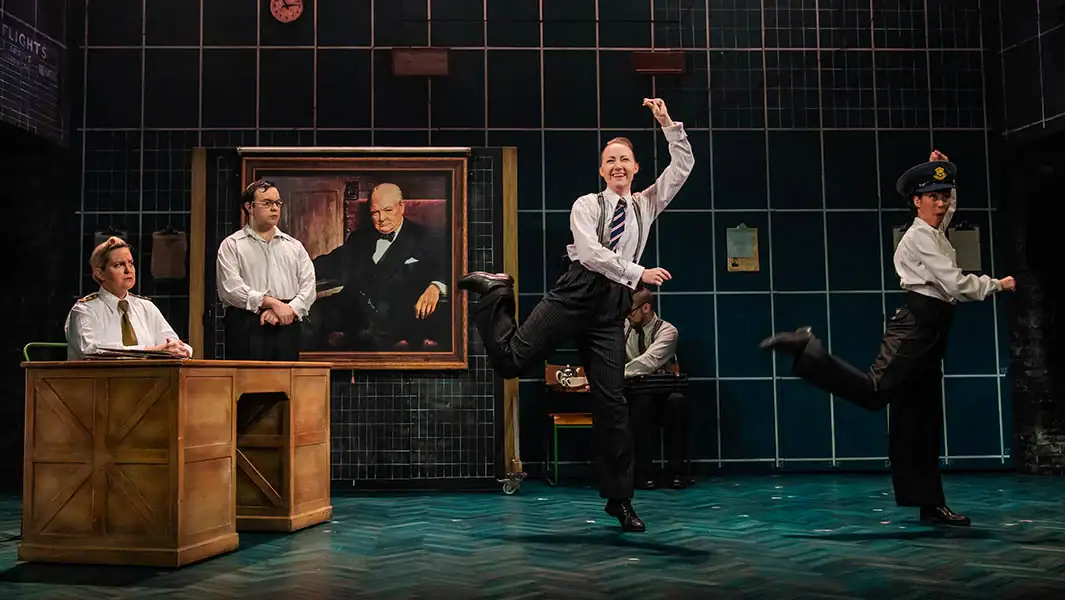
Charles Cholmondeley
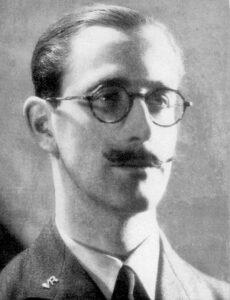
In the show:
Socially inept, awkward and brilliant, Charles Cholmondeley is the brain behind the titular Operation Mincemeat. Despite his plan not being initially well received, Charles forms an unlikely allyship with his colleague Ewen Montagu. Constantly underestimated, Charles can uniquely see the abilities of those overlooked by MI5. As the mission advances, Charles comes into his own as a person and a leader, ultimately embodying the leadership qualities he once lacked. Though at first he thought he was born to follow, Charles was born to lead.
In real life:
Born in South Australia, Charles Christopher Cholmondeley (1917-1982) was the MI5 operative responsible for developing the plan for Operation Mincemeat. During the Second World War, he served as a flight lieutenant in the Royal Air Force, despite reportedly never having flown. He was soon seconded to MI5, where he was a member and secretary of the Twenty Committee, a small subdivision of MI5 in charge of double agents. Cholmondeley was known as an eccentric, and it was this creative and unconventional thinking that resulted in his invaluable involvement in the committee.
In an attempt to breach the seemingly impenetrable Sicily, the Twenty Committee asked its members to pitch ideas for deception operations that would redirect German forces to a different area. Though Cholmondeley’s idea, which would become Operation Mincemeat, was initially rejected as too complex, Cholmondeley was allowed to continue planning with the assistance of naval representative Ewen Montagu. The combined ingenuity of the two allowed Operation Mincemeat to be successfully implemented, and Sicily was invaded by the Allies, leading to Mussolini’s downfall later that month. Cholmondeley received the Member of the Most Excellent Order of the British Empire in 1944 for his war efforts. He quietly continued his life with his wife Alison and three children until his death in 1982. His old friend Ewen Montagu wrote his obituary in The Times.
Ewen Montagu
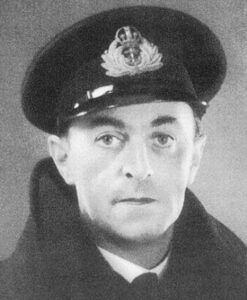
In the show:
The classic portrait of an upper-class English gentleman spy, Ewen Montagu presents himself as the prime example of an MI5 operative. Charming and ambitious, with a bit of an inflated ego, Ewen nevertheless looks past his own preconceptions of Cholmondeley to see the brilliant mind beyond. Ewen’s flaws offset Charles’, and the pair succeeds through continual trust and cooperation. Despite suggestions of counterespionage and links to undesirable family members, Ewen proves as trustworthy as the rest of the team, with perhaps a tiny weakness for the finer things in life.
In real life:
Ewen Montagu (1907-1985) was born to Baroness and Baron Swaythling, descendants of the famous American Rothschilds on his father’s side. From a young age, he was involved in military service, becoming a machine gun instructor during World War I. When the war ended, Ewen attended Cambridge and then Harvard, becoming a barrister and building a successful law career. Ewen was also an ardent yachtsman, and he enlisted in the Royal Navy Volunteer Reserve in 1938. His legal knowledge and social position ultimately resulted in his full-time assignment to the British Admiralty. Rising swiftly through the ranks, he was ultimately assigned as the Naval Representative on the XX Committee, where he met Charles Cholmondeley and began his work on Operation Mincemeat.
Montagu was crucial to the creation of “William Martin,” the alias given to the corpse of Glyndwr Michael used for the operation. Montagu’s eye for detail and subtlety lent invaluable realism to the endeavor. Despite what the stage production may imply, Ewen’s brother’s involvement with the communist party was not great enough to be considered a threat, so Ewen was never under investigation. For his role in the success of the operation, Montagu was appointed to the Military Division of the Order of the British Empire alongside Charles Cholmondeley. After the war, he was appointed as Judge Advocate of the Fleet. He wrote his own account of his role in Operation Mincemeat in the book The Man Who Never Was and was a public figure until his death in 1985.
Montagu’s descendants saw the Broadway production of Operation Mincemeat and loved the show so much that they bestowed Montagu’s hat to Natasha Hodgson, creator of the show and actor portraying Ewen.
Hester Leggatt
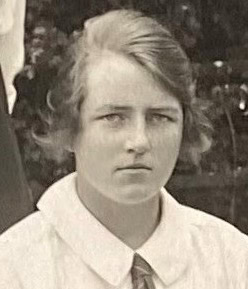
In the show:
A firm and competent leader, Hester worked her way up the ladder at MI5 to achieve a position of leadership within the secretarial division. So skilled and discrete is she that she earns the trust of the ever skeptical Johnny Bevan and is assigned the task of keeping an eye on the possibly untrustworthy Montagu. Full of heart and unexpected depth, Hester is a keystone of the mission and necessary to the success of its group dynamics. A mentor to Jean, she is able to muffle clashing egos and refocus the team on the crucial elements of the mission. Hester’s growing relationship to each member of the unit is crucial to the flow of the show, and she ultimately receives a much-deserved happy ending.
In real life:
Hester May Murray Leggatt (1905-1995) was born in India. She moved to the UK prior to the First World War but was too young to be involved in any early war efforts. By 1924, Leggatt had graduated from grammar school and carried on to complete secretarial training at St. James Secretarial College in London. She then was employed by the war office, progressing to become a Grade 2 Secretarial Assistant in MI5’s section B1a, which specialized in running the double espionage agents in 1940. During Operation Mincemeat, she produced “two magnificent letters,” according to Ewen Montagu, but she refused to confirm that she had actually written them. Following the war, Leggatt worked at the British Council before retiring to Buckinghamshire. She died in a nursing home in 1995.
Leggatt’s involvement in the real-life Operation Mincemeat is a comparatively recent public revelation. She was not officially recognized until 2010, with the publication of Operation Mincemeat by Ben Macintyre, and her full involvement will likely never be known. While MI5 confirmed Leggatt’s involvement in the operation, her personnel file was routinely destroyed in the 1960s, as was the case with many of the people involved in covert operations. Thanks to the recent interest in Operation Mincemeat, research revealed a sliver of the magnitude of Leggatt’s role, and she is now officially recognized on a historical plaque hanging at the Fortune Theatre.
Johnny Bevan
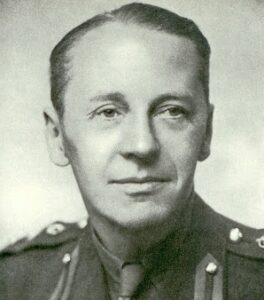
In the show:
An institution of MI5, Colonel Johnny Bevan is the one to convince that a brilliant plan is, in fact, brilliant. Though he is not easily impressed, Bevan has the experience to check out-of-hand egos and recognize a potentially overlooked contribution as being of use. His focus is entirely on winning the war and protecting the Allies from any potential threat, even if that involves spying on his own agents.
In real life:
Colonel John Henry Bevan (1894-1978) was born into a tumultuous time in world history. Old enough to serve in both World Wars, Bevan was shaped by these conflicts. Born in London, Bevan attended Oxford until the First World War, when he immediately left to enlist into the Hertfordshire Regiment of Territorial Force. He attained the rank of Captain and was awarded the Military Cross in 1917 for his service. In 1918, he wrote an appraisal of German order of battle, which ended up being so accurate that Winston Churchill requested a private meeting. Once WWI ended, Bevan stayed in the military. Though the details of his activities have not been made public, they were certainly of the tactical deception variety. Between the world wars, Bevan also practiced as a stockbroker, becoming a partner at his father’s firm, David A. Bevan & Company.
Once the Second World War began, Bevan immediately returned to military service, though this time in MI5. He was involved in a variety of subterfuge missions during the war, both successful and unsuccessful, including Operation Mincemeat. In 1945, he was awarded the Efficiency Decoration for long service, and he retired. Though he only reached the title of Lieutenant-Colonel while in service, he was awarded the honorary title of Colonel upon retirement. The scope of Bevan’s contribution to Allied deception strategy wasn’t truly recognized until the 1970s, when restricted archives drawing attention to his work were publicly released.
Jean Leslie
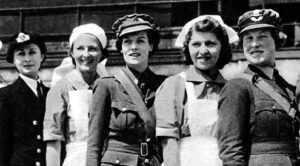
In the show:
Whip-smart and ambitious, Jean enters the stage in a blaze of passion to fight for her place at MI5. From the moment she appears, Jean disdains the systemic exclusion of women from MI5 and dreams of being ranked highly alongside the male officers. Her determination and refusal to be relegated to the sidelines land Jean directly in the Operation Mincemeat team, where she becomes crucial to communicating and executing the plans. Jean looks beyond the confines of Operation Mincemeat toward a better future for women, continuing to “get in the system [and] rip it apart.”
In real life:
Interestingly, Jean is the only composite character among the leads, serving as a symbolic placeholder rather than representing a specific historical figure. As indicated by her opening musical number “All the Ladies,” Jean is a stand-in for the many remarkable – and often unnamed – women involved in the Allied war effort.
The Official Secrets Act of 1939 prohibited individuals involved in sensitive committees – like Committee XX – from discussing their wartime activities, often for decades after the war had finished. Many women worked in these sensitive positions, including as undercover operatives, code breakers and intelligence analysts. Often underestimated and overlooked, these women fought for their positions in male-dominated rooms. In fact, women outnumbered men in MI5, though they were generally relegated to clerical and secretarial roles, unless commissioned to a specific post due to exceptional skills. One such woman was Aileen Clayton, who was the first member of the WAAF (Women’s Auxiliary Air Force) to be recruited for intelligence duties. Crucial in intercepting and interpreting enemy radio transmissions, Clayton was a key member of the Y-service, where she served throughout the war. Jean Leslie is an empowering alias for Clayton and the many women who remain unrecognized for their contribution to the war effort.
For more information about Operation Mincemeat, visit Concord Theatricals in the US or UK.

Comedy Mysteries: Gasps, Laughs and Thrills

A Children’s Theatre Classic: An Interview with Snow White And The Seven Dwarfs Composer Michael Valenti

